Tackling Teething Global Crises : Paris Divulges Innovative Approach
- Par Godlove BAINKONG
- 26 Jun 2023 10:52
- 0 Likes
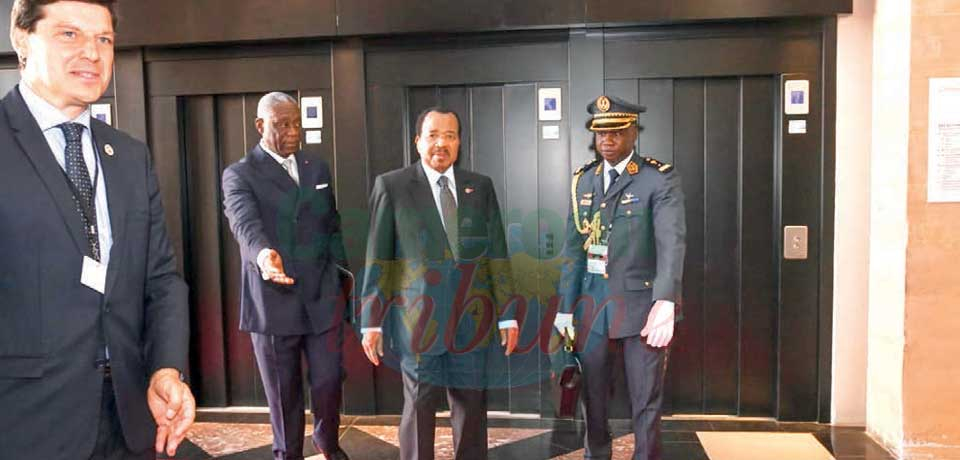
President Paul Biya and other world leaders separated in the French capital Friday after two days of deliberations within the framework of Summit for a New Global Financial Pact with new commitments whose implementation is expected to clear speed brakes t
Some close to 50 Heads of State, including Cameroon’s President Paul Biya, along with representatives of international organisations have rounded off two days of in-depth discussions on how well the world can stand in the face of challenging global crises ranging from planet warming, heath, debt and poverty. The June 22-23 Paris Summit for a New Global Financial Pact enabled the world leaders to examine in detail the magnitude of the globally-menacing crises and collectively propose adaptable solutions to keep the welfare of man and environment intact. The world leaders are leaving Paris hopefully with rich knowledge and commitment to work as a team and as well draft adaptable policies to cushion the effects of the crises and pre-empt others that might be lurking. They will certainly be motivated by host President, Emmanuel Macron’s repeated words that, “no country should have to choose between reducing poverty or protecting the planet.” For, these are interwoven problems that must be tackled boldly and holistically. The closing ceremony at the Palais Brongniart moderated by French President, Emmanuel Macron with President Paul Biya at the forefront, gave the Heads of State and other world leaders the opportunity to share practical experiences, pinpoint areas of interest and point out the way to go. Coming after over 50 thematic events and six roundtables during which experts deliberated on a widerange of topics, the closing ceremony was in form of a high-level dialogue in which the leaders focused on, “Prologue: The Paris Consensus, what avenues for the coming months.”
What Next After Paris?
From the speeches and other discussions, participants of the Paris Summit for a New Global Financial Pact are unanimous that the world needs to have a qualitative leap. This entails investing in sectors that really change people’s lives. Drafting a beautiful plan, they said, is one thing and implementing it is another. Thus, the need to walk the Paris talk and journey the world’s population out of poverty. Developed and developing countries each have roles to play. The Heads of State hold that leadership is all about responsibilities. As such, rich counties must live up to their ethics-based responsibilities towards developing countries even as reforms on global finance architecture are indispensable. According to Barbados Prime Minister, Mia Mottley, who has become a powerful advocate for reimagining the role of the World Bank and International Monetary Fund in an era of climate crisis, the international financial order needs absolute transformation. “We come to Paris to identify the common humanity that we share and the absolute moral imperative to save our planet and to make it liveable,” she said. Going by the UN SecretaryGeneral, Antonio Guterres, “There will be no serious solution to this crisis without serious reforms. I have called for a new Bretton Woods moment a moment for governments to come together, reexamine and re-configure the global financial architecture for the 21stcentury.” He said this is a question of power and political will, and change will not happen overnight. “But as we work for the deep reforms that are needed, we can take urgent action today to meet the urgent needs of developing and emerging economies. That is why I have proposed an SDG Sti...
Cet article complet est réservé aux abonnés
Déjà abonné ? Identifiez-vous >
Accédez en illimité à Cameroon Tribune Digital à partir de 26250 FCFA
Je M'abonne1 minute suffit pour vous abonner à Cameroon Tribune Digital !
- Votre numéro spécial cameroon-tribune en version numérique
- Des encarts
- Des appels d'offres exclusives
- D'avant-première (accès 24h avant la publication)
- Des éditions consultables sur tous supports (smartphone, tablettes, PC)







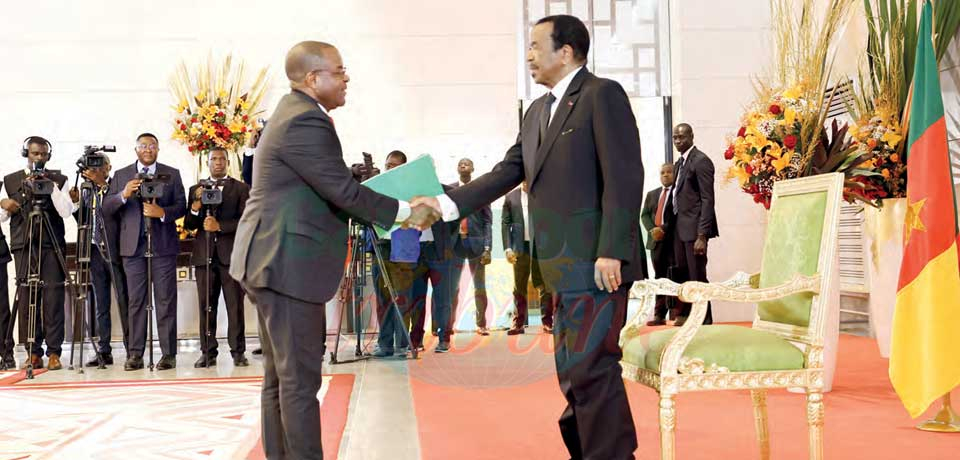
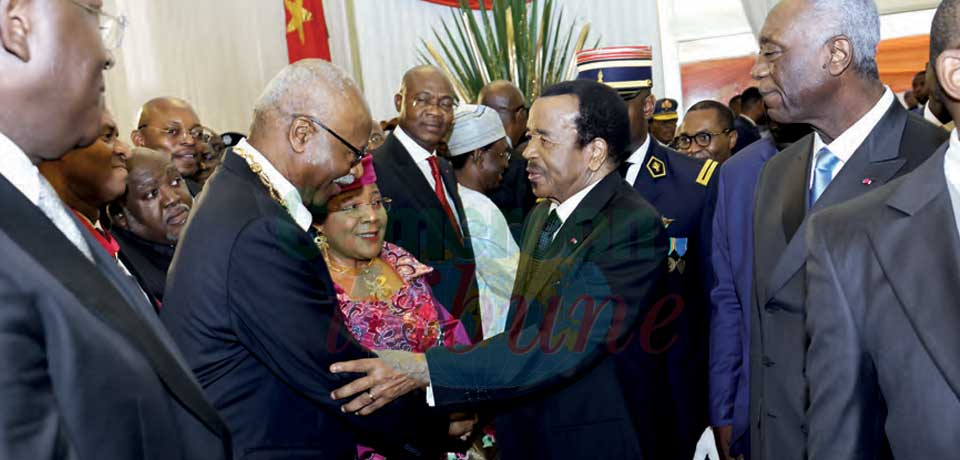
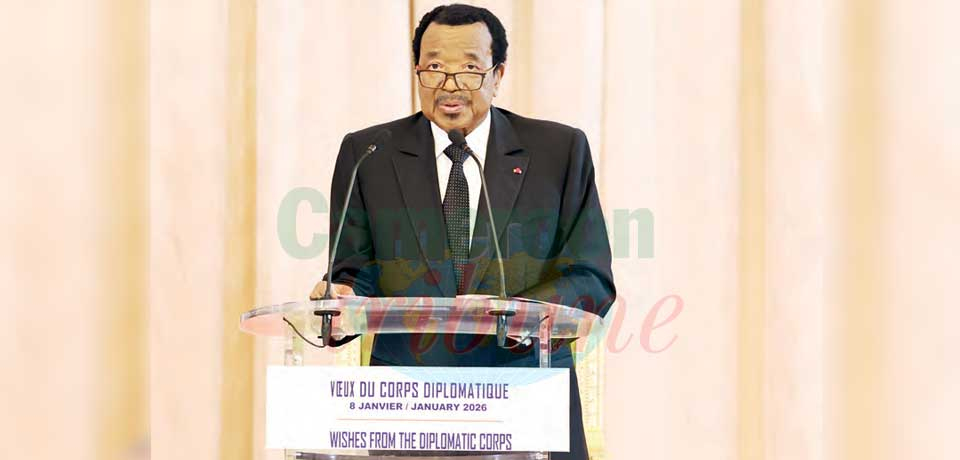
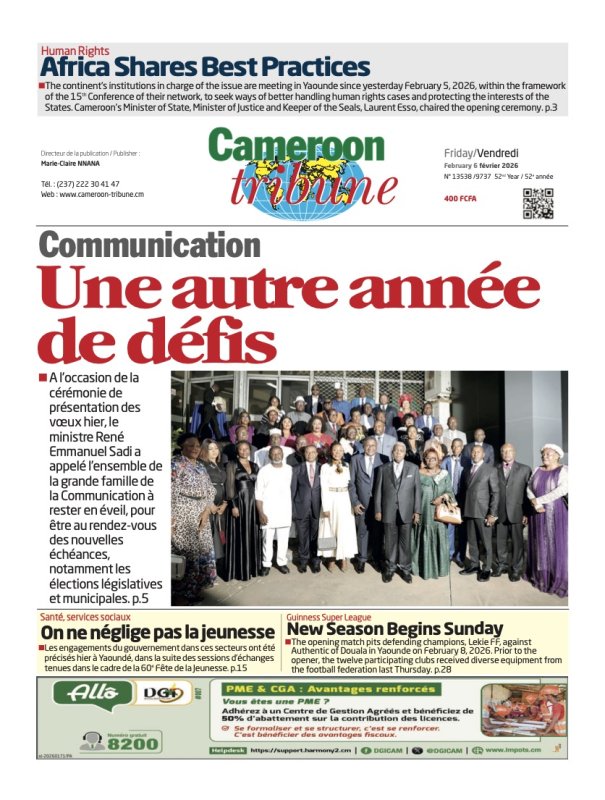




Commentaires